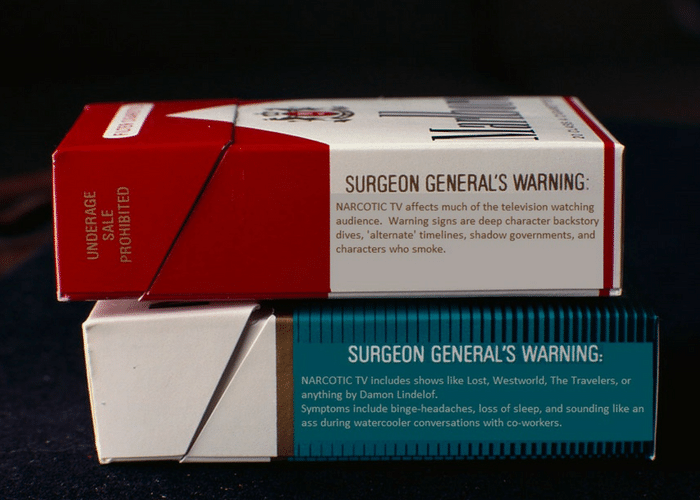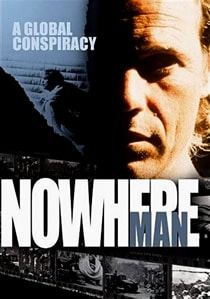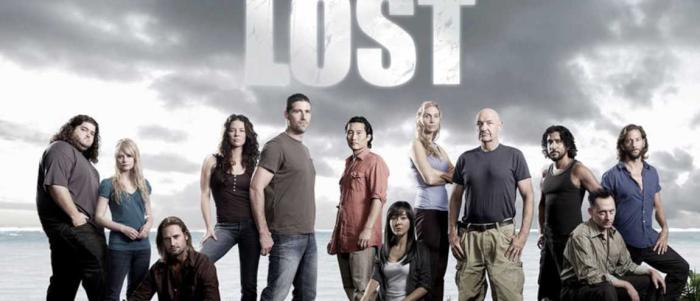

PSA: The Warning Signs Of A Narcotic TV Addiction
By Lord Castleton | TV | March 29, 2018 |
By Lord Castleton | TV | March 29, 2018 |

Hi, my name is Lord Castleton and I’m addicted to Narcotic TV. And you may be, too.
It may be you.
It may be your friend.
It may be someone close to you. Narcotic TV is real and accounts for most of the unintentional binge-watching that happens in the world. It causes time lapses, poor judgement and sometimes even cheeto-fingers. It usually features a show with excellent writing and acting, with no sense of where or why the show is headed. Narcotic TV typically lures you in with a vast, hard-to-quantify mystery and promises you a solution that it never delivers. Instead it hits you with a dopamine cliffhanger at the end of every episode to keep you hooked.
What is ‘Narcotic TV’?
It’s a certain brand of television that has taken shape over since the 1990’s which focuses all of its attention on an intriguing series of storylines and mysteries with little or no way to pay them off.
What is the origin of ‘Narcotic TV’?
The roots of Narcotic TV are difficult to ascertain. Many people would point to 1967’s ‘The Prisoner’ or ‘The X-Files’ in 1993, but it probably began with an ambitious show called ‘Nowhere Man’ (1995).

Here’s the overview of ‘Nowhere Man’, starring Bruce Greenwood:
Bruce Greenwood stars as documentary photographer Thomas Veil who, in the course of one evening, seemingly has his whole existence erased, in the compelling one-hour drama Nowhere Man. It appears as if some mysterious and powerful entity has coerced Veil’s family and friends into cooperating in a clandestine plan to annul every trace of him. Veil is all alone with no option but to begin a desperate, dangerous quest to find out how and why this has happened and most importantly, who is behind this torturous scheme.
Specifically, Thomas Veil’s wife and kids drop him off before entering a car wash in their minivan.
He watches the van go through and when it comes out the other side, it’s empty. And no one has ever heard of his wife or children. Or him. Like they never existed.
What makes ‘Nowhere Man’ the ideal candidate for the origin of ‘Narcotic TV’?
It featured some really really cool (at the time) quirks that have become the hallmark of Narcotic TV. For example, all of the bad guys would smoke cigars, but not before using a sharpened pencil to poke a hole in the mouth-end. So, for example, two powerful men would be talking and let’s say one was a judge and the other was a senator. And then the senator pokes a hole in his cigar with a pencil and you go:
“Oooooooohhhhh. He’s one of them!”
Things like that distract viewers from the real story. And the fact of the matter is this: Nowhere Man was NEVER EVER EVER going to pull off the premise. Never.
Back then, that meant cancellation.
Now, not so much.
What’s the most famous ‘Narcotic TV’ show?
The list is growing, but the #1 Narcotic TV show of all time is ‘Lost’.

Lost got you invested in characters so hard that you would sit and watch an hour about the eighth or tenth most important person in the cast. It brilliantly added a ton of cool stuff on a weekly basis. Smoke monsters and hatches and Dharma Initiatives and people vanishing and expensive scotch. And the viewing audience became trained to completely forget the plot and only hold out for a pavlovian dopamine trigger of mysterious cliffhangers.
How would I know if I’m watching Narcotic TV?
There are lots of ways. Is the show asking questions without answers? Does the show close plot points with more mysteries? The biggest clue, obviously, is if you see the names ‘J.J. Abrams’ or ‘Damon Lindelof’ in the opening credits? You’re watching Narcotic TV.
J.J. Abrams’ Ted Talk is actually all about the concept of a mystery box. A literal box he bought from a magician as a kid that HE STILL HASN’T OPENED. Because the mystery is always better than the reveal. PROCESS THAT!
Do people always know when they’re addicted to Narcotic TV?
No way! I have a dear friend, let’s call him ‘Dustin’ who never even knows when he’s watching it. He’ll be like “No! ‘The Leftovers’ is beautiful! The performances are amazing! It’s totally worth it to watch 18 hours of television just to get to the ‘International Assassin’ episode!”
And then we ask him “yes, but why do they smoke?”
He’ll write explanations and wax poetic about the writing. But he can’t answer a simple question.
Why do they smoke?
“To, like proclaim their faith that they’ll be like raptured before they get cancered and shit!”
So how does that inform the A Plot? How would the outcomes have changed if, say, the Guilty Remnant sucked lolipops instead?
“Did you even WATCH the show? You fucking caveman! The Leftovers is amazing!”
So you say! Why did the Guilty Remnant steal everyone’s pictures? How did that inform the plot?
“The pictures? We’re talking about a beautiful show about the contemplation of life and death and you’re talking pictures?”
Yeah. And smoking. And why they stand outside your house staring. And why they don’t speak. And why they’re ‘guilty.’ And why they have signs that say ‘stop wasting your breath.’

It’s not congruent. It’s not thought all the way through because no one demands that it be. You see Justin Theroux in a beard and all is forgiven. I don’t have to understand what the everliving hell is going on with Scott Glenn and aboriginal raindances (uhhhhhhh…yeahhhhh) as long as I get me some Carrie Coon hard-pouting every once in a while!
Because it’s the mysterious, cool things that got you through the first several episodes of a Narcotic TV show. Those things shine the hook. Smoking like that? That’s ‘a thing that would certainly have a reason!’ The Guilty Remnant wants people to save their breath for…carcinogens? Huh?
“We’re not even talking we’re so serious about using our breath for smoking! We’re lighting new cigarettes with the one still in our mouths!”
Certainly there must be a reason for that!
But, no.

‘The Leftovers’ is a good show. So was ‘Lost’. Are there crappy versions of Narcotic TV?
Of course. Copied from the Wikipedia page, here’s the breakdown of USA network’s show ‘Colony’ as it approaches its third season. ‘Colony’ is somewhere between fine and terrible.
In a dystopian near-future Los Angeles, residents live under a regime of military occupation by an organization known as the Transitional Authority. The Authority serves an extraterrestrial group who are referred to as the “Hosts”. It is said of them that “no one ever sees them”. The symbol of the collaborating forces features a stylized bird of prey, raptors, which gives rise to their nickname, the “Raps”. The Hosts enforce their will via militarized police nicknamed the “Redhats”. Most basic resources, most importantly food, are rationed and distributed by the Transitional Authority.The Hosts attacked on a day now known simply as the “Arrival”. Late in the day, massive rectangular blocks descended from the sky, linking together to build walls dividing up the city. One of these walls, 20-30 stories tall, many meters thick, and many miles in length, surrounds the central part of Los Angeles, where the series is set. Other similar walls have been constructed around other major cities, which are now called “Colonies” and divided into “Blocs”. The geographical extent of the alien invasion is unclear, but it is presumably worldwide.
A privileged class of elites, drawn by the Hosts from the local population, are denigrated by some residents of the bloc as collaborators. These forces maintain control by separation of loved ones, shoot-on-sight curfews, forced disappearances, random checkpoints and frequent electronic identity checks, limitation of motor vehicle usage to official transport by permit only (most citizens must walk or ride bicycles), pervasive visual propaganda, slave labor in a place called the “Factory” for transgressors (and their families) who are not executed and electronic surveillance with Host-provided drone aircraft that launch from the wall. Some medical problems, such as diabetes, have been “deemed unworthy for treatment” by the Hosts, to cull the population with a crude form of eugenics.
A resistance movement is referred to as both the “Resistance” and the “Insurgency”. An informal barter-based black market has also sprung up, trading in surplus materials and home-produced goods.
In the second season, it is revealed that a large organization, known as the Global Authority, is controlling the Transitional Authority and the colonies. In flashbacks, it is revealed that, before the Arrival, a mysterious human organization, calling themselves the “Institute for Global Advancement”, was responsible for helping the Hosts start the invasion.
I mean, blech. See how many of the Narcotic TV markers that hits? No surprise it was created by Carlton Cuse, also of ‘Lost’ fame.

And yeah, it also starred Josh Holloway. And look! There’s Carl Weathers behind him! Baby, you got a stew goin’!
How can I wean myself or my friend off of Narcotic TV?
Demand closure. Recognize when you’ve been led down a rabbit hole that goes nowhere. In this day and age, Narcotic TV is all around us. It begins with a HUGE premise, and then pretends to explain it or pretends to make traction toward explaining it.
But it never really does.
That doesn’t mean a show is bad, necessarily. Usually these shows are satisfying. It just means you’re never going to get closure. ‘The Travelers’ on Netflix, for example, is Narcotic TV. It’s an enjoyable watch, so I don’t want to spoil it. You can read about it here. But that’s classic Narcotic TV. It’s completely open-ended because if they ever run into a plot problem, they can literally change any character without having to explain it at all.
‘Westworld’ on HBO has no idea what it is or where it’s going and will ultimately leave you angry and frustrated. It will just keep adding theme parks until it runs out of ideas and then we’ll find out it was all a dream or something idiotic like that.
A notable example: ‘The Good Place’ had all the earmarks of classic Narcotic TV. Huge premise. Crazy ass reveals every episode. BUT THEN IT TIED EVERYTHING UP WITH A BIG BOW. That’s why it’s so beloved. Because unlike other Narcotic TV shows, when they throw a Hail Mary, there’s actually a receiver in the endzone to catch it.

How long do Narcotic TV shows last?
It depends how long the showrunners can fool the audience into believing that they themselves know where the story is going.

Take ‘Heroes,’ for example. A hit show on NBC. People went from loving it to hating it when it became obvious that they were on a rudderless ship. To really keep viewers connected, you have to either give them some answers, or trick them into feeling like they were given some answers.
Satisfaction, specifically, is the key.
And you can give the illusion of satisfaction by using a new mystery to render a smaller mystery obsolete. Or by just adding characters. And as the mystery unfolds, that character can become more important, because he or she has part of the answer. And then you can kill them off and start looking for someone who has another part of the answer. Eventually viewers forget what the big mystery was in the first place.
Side Effects of Narcotic TV
Binge-headaches, lethargy at work, insomnia, having lucid dreams about visiting Westworld, TV dinners, oversnacking, being attracted to people who have a lot of drama but no follow through.
So do your part today. Protect yourself and your loved ones from this heinous epidemic. Before you too wake up with an empty sleeve of Pringles and the self-hatred and desperation that comes from straight-bingeing three seasons of Bloodline.
Follow Lord Castleton on Twitter
Did you know that you can make ANY shirt at The Pajiba Store? Just pick a shirt you
like and UPLOAD YOUR OWN DESIGN. We still get a bump for every shirt you make, even if
it’s not Pajiba-specific.
← What's Your Pop Culture Blind Spot? | 5 Shows After Dark: Sirens Premiere, Marcia Clark Investigates Premiere →
More Like This
One Of The Stars Of 'The Hangover' Is Joining 'Only Murders In The Building'
A Legendary Horror Franchise Is Headed To Television
Trying To Make it Through the Oscars
Josh Brolin Hosts 'SNL' but Ariana Grande and Scarlett Johansson Steal the Show
One Ruthless Move Saved an Otherwise Uneven Season of 'Traitors'

What’s Old Is New Again: Old Hollywood Glamour Glitters at the 2024 Oscars
Al Pacino Presents Best Picture Oscar, Confuses Everyone
The Dangerous Lie Of 'TradWives'
A Legendary Horror Franchise Is Headed To Television
'The Mandalorian' Season 4 Is Probably Not Happening
Halle Bailey On Why She Chose To Keep Her Pregnancy Private
More Like This
One Of The Stars Of 'The Hangover' Is Joining 'Only Murders In The Building'
A Legendary Horror Franchise Is Headed To Television
Trying To Make it Through the Oscars
Josh Brolin Hosts 'SNL' but Ariana Grande and Scarlett Johansson Steal the Show
One Ruthless Move Saved an Otherwise Uneven Season of 'Traitors'
Reviews